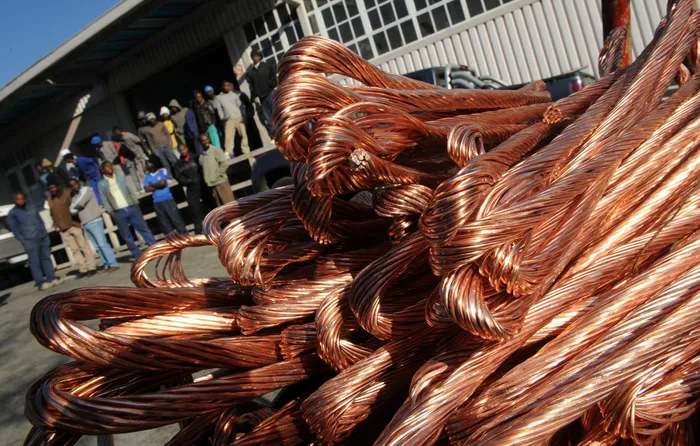Saving SA’s SOEs requires political will and grit

Picture: Chris Collingridge – A joint operation involving Eskom, Transnet, SAPS and City Power led to the recovery of copper wire from a scrap dealer in Johannesburg. The owner was arrested. Transnet operations have been highly compromised by the rampant theft of railways overhead copper cables and even the railway tracks; and there is no political will on the side of government, the writer says.
Picture: Jacques Naude/African News Agency (ANA) – Prasa (Passenger Rail Agency of South Africa) House in Hatfield. Prasa has just saved the government about R200 million through a workforce verification process.
By Bonke Dumisa
State-owned enterprises (SOEs) are mostly businesses that are fully owned by the government in order to protect the broader interests of society, that could not be satisfactorily met if everything was simply left to the private sector, where only the laws of demand and supply dictate the supply of such products.
It is not by coincidence that most South African SOEs are linked to the transportation sector, utilities sectors like electricity and water. The major reason it is globally common for most SOEs to be in these sectors is because of the very large upfront capital outlay and extent of land required to deliver such products and/or services.
Another reason for SOEs is that in most instances their delivery is usually dependent on the use of common natural resources that, if completely left to the pure market forces of supply and demand, there would be civil strife and civil unrest when those without access to such natural resources demand access.
Did you notice that I did not mention job creation as the primary reason for the creation of SOEs? This is because any business that is primarily based on job creation will fail, because most of the businesses are created with an intention of creating value, where such creation of value is achieved through the optimisation of all the available resources in the production processes.
An analysis of many South Africa SOEs reveals that at the centre of the failure of such entities is mostly the element of human capital, rather than pure financial challenges.
Starting with Transnet, which has just publicly announced that its subsidiary, the Passenger Rail Agency of South Africa, has just saved the government about R200 million through a workforce verification process. This process has exposed that it has at least 3,100 ghost employees – these “workers” have not come forward to be verified – and 1,199 employees have resigned. Can you imagine how many more thousands of ghost workers can be uncovered at SOEs if the government dictates that the same strict worker verification processes be undertaken throughout all the SOEs?

Still on Transnet, their operations have been highly compromised by the rampant theft of railways overhead copper cables and even the railway tracks; and there is no political will on the side of government, the police, and other government structures to raid, arrest, prosecute and imprison all those involved in such criminality. The mass media and other social media usually have photos of many of the “scrapyards” where the Transnet copper wires and even railway lines are seen; but we hardly have any action taken against such criminal syndicates. This is the direct opposite of what happened in Kenya where it was declared treason for anyone to steal such government property.
There have been a few cases where some foreign nationals, mostly from the far Eastern countries like China have been arrested; but you never ever hear about those people again. Is it possible that the South African government gets pressured not to prosecute and imprison such foreign nationals “for the sake of avoiding damaging the good international relationships South Africa has with those countries”?
Coming to Eskom, Andre de Ruyter, the Eskom CEO, has publicly blamed both Eskom employees and service providers for sabotaging Eskom by deliberately physically damaging Eskom infrastructure for a number of reasons including “creating continuous work”. We always hear of Eskom service providers who deliberately mix coal with rocks when making deliveries to Eskom; or other service providers who bill Eskom for services and/or goods not provided. You hardly hear about the arrest, prosecution, or imprisonment of such criminal wrongdoers.
In both Transnet and Eskom cases, it was very embarrassing to witness how the striking workers at both entities were boasting they were bringing the operations of both entities to a complete shutdown in pursuit of their double-digit salary increase demands. In the case of Eskom, the trade unions heightened their demands when excessive loadshedding was at its worst. The same can be said about the trade unions who saw victory when South African international trade was highly disrupted.
South African Airways went down when the employees went on strike when the company was battling to break even. The same can be said about South African Express.
In short, the South African SOEs cannot be saved unless and until the government gets the political will to strongly act against anyone who deliberately sabotages the operations of these entities. Continuously bailing out these SOEs creates an impression that they have unlimited financial resources.
Professor Bonke Dumisa is an independent economic analyst.